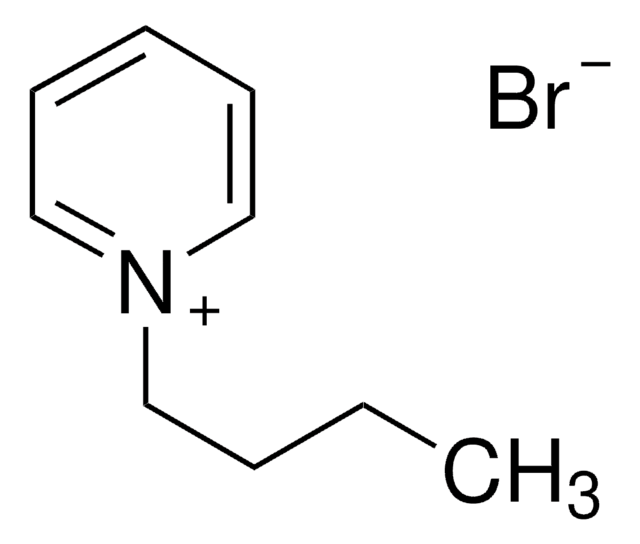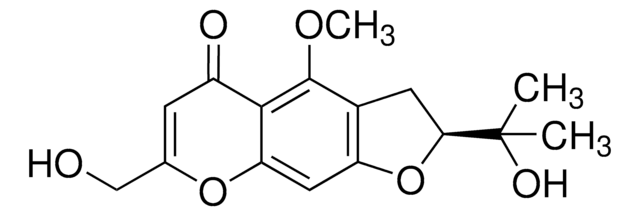SCP0168
Histone Deacetylase Substrate
≥95% (HPLC), lyophilized
Iniciar sesiónpara Ver la Fijación de precios por contrato y de la organización
About This Item
Fórmula empírica (notación de Hill):
C23H31N3O6
Peso molecular:
445.51
Código UNSPSC:
12352204
NACRES:
NA.32
Productos recomendados
product name
Histone Deacetylase Substrate,
Análisis
≥95% (HPLC)
formulario
lyophilized
composición
Peptide Content, ≥85%
condiciones de almacenamiento
protect from light
temp. de almacenamiento
−20°C
Amino Acid Sequence
BOC-Ac-Lys-AMC
Aplicación
BOC-Ac-Lys-AMC (MAL) is used as a fluorogenic substrate for assaying both human zinc and NAD+-dependent histone deacetylases.
Código de clase de almacenamiento
11 - Combustible Solids
Clase de riesgo para el agua (WGK)
WGK 3
Punto de inflamabilidad (°F)
Not applicable
Punto de inflamabilidad (°C)
Not applicable
Certificados de análisis (COA)
Busque Certificados de análisis (COA) introduciendo el número de lote del producto. Los números de lote se encuentran en la etiqueta del producto después de las palabras «Lot» o «Batch»
¿Ya tiene este producto?
Encuentre la documentación para los productos que ha comprado recientemente en la Biblioteca de documentos.
Birgit Heltweg et al.
Analytical biochemistry, 319(1), 42-48 (2003-07-05)
Histone deacetylases (HDACs) are involved in the regulation of transcription and their inhibitors are a promising class of new anticancer drugs. We have previously reported Boc(Ac)Lys-AMC, also termed MAL, as a fluorescent substrate for HDACs. Now we present a modification
Birgit Heltweg et al.
Methods (San Diego, Calif.), 36(4), 332-337 (2005-08-10)
Histone deacetylases are important regulators of transcription and an emerging target for anticancer drugs. We present an overview over various assay formats that include radiolabelled histones, oligopeptides, and small molecules as substrates. The advantages and disadvantages of the various formats
Neetinkumar D Reddy et al.
Chemico-biological interactions, 233, 81-94 (2015-04-01)
The potential of cinnamic acid as an anti-inflammatory and anti-cancer agent has been studied previously. In our investigation, novel bio-isosters of cinnamyl sulfonamide hydroxamate were synthesized, characterized and confirmed for their structure and evaluated for cytotoxicity. Three NCEs namely, NMJ-1
Nuestro equipo de científicos tiene experiencia en todas las áreas de investigación: Ciencias de la vida, Ciencia de los materiales, Síntesis química, Cromatografía, Analítica y muchas otras.
Póngase en contacto con el Servicio técnico








